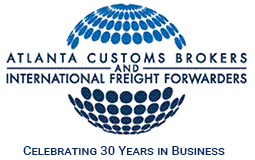5 Things You Need to Know About Customs Bonds
Getting ready to start importing your goods? Before going through with it, make sure you know the requirements about U.S. customs bonds.
Why is this important? For starters, these bonds are a key element of international trade. They can help you to increase compliance and protect your business from fines and delays.
What is a customs bond? How many types of these bonds are there? The following list will provide answers to these and other important questions.
1. Customs Bonds Do Not Provide Coverage
Technically speaking, a customs bond is an insurance product. That said, it serves a unique function. In simple terms, this is a three-party agreement between a surety, a bond principal, and CBP (Customs and Border Protection).
This agreement guarantees that any financial obligations to CBP will be carried out. If the principal cannot fulfill these obligations, that duty falls to the surety. Of course, that is only true up to a certain liability threshold.
2. Buying a Customs Bond
The easiest way to buy a bond is through a customs broker or freight forwarder. They will provide all the necessary paperwork, making the whole process a breeze.
Alternatively, you can buy a customs bond directly from a surety agency. However, keep in mind that not every surety agency offers this option to their customers.
3. Continuous Bonds Are a Good Deal
There are two major types of customs bonds: a single-entry customs bond and a continuous customs bond.
Are you planning on importing your goods on a regular basis? If so, a continuous bond would be a very good investment. Once filed with CBP, these bonds remain on file until they are actively terminated.
Having a continuous bond comes with other benefits. For example, you would not have to buy a separate bond for your ISF (Importer Security Filling). Otherwise, you must submit your ISF at least 24 hours before importing your goods.
4. A Customs Bond Is Not Optional
Most trade-related insurance products are optional. A customs bond does not fall into this category.
What happens if you do not have a valid customs bond in place? Well, it is quite simple: CBP will not allow you to import your goods past the port of entry. In a way, a customs bond is the price of being in the importing business.
5. The Price of Bonds Can Vary
When it comes to single entry bonds, you cannot pay less than what your cargo is worth. If the government needs to approve the goods, the minimum bond amount must be equal to three times the worth of cargo. This amount does not include ISF filings.
Continuous bonds are easier to understand. You can either buy a minimum of $50,000 or 10 percent of the fees and taxes from the previous year. Even with as few as 3 or 4 shipments a year, a continuous bond is very cost-effective.
Summing it Up
Hopefully, this short guide has given you some insight into the world of customs bonds.
Our final piece of advice? Check with a professional before doing anything that affects your supply chain. In some cases, that can make all the difference.
Need the services of a customs brokerage firm? We can help you out. Contact us here and we will get back to you as soon as possible.
Atlanta Customs Brokers is one of the oldest and most trusted customs brokerage and shipping firms in Atlanta. Established in 1985, our company has been a fixture in and around the Atlanta airport and Savannah port for more than 31 years. We enjoy working with our international partners and enjoy what we do. If you are a first-time importer or exporter or a large corporation, we can handle your needs.

